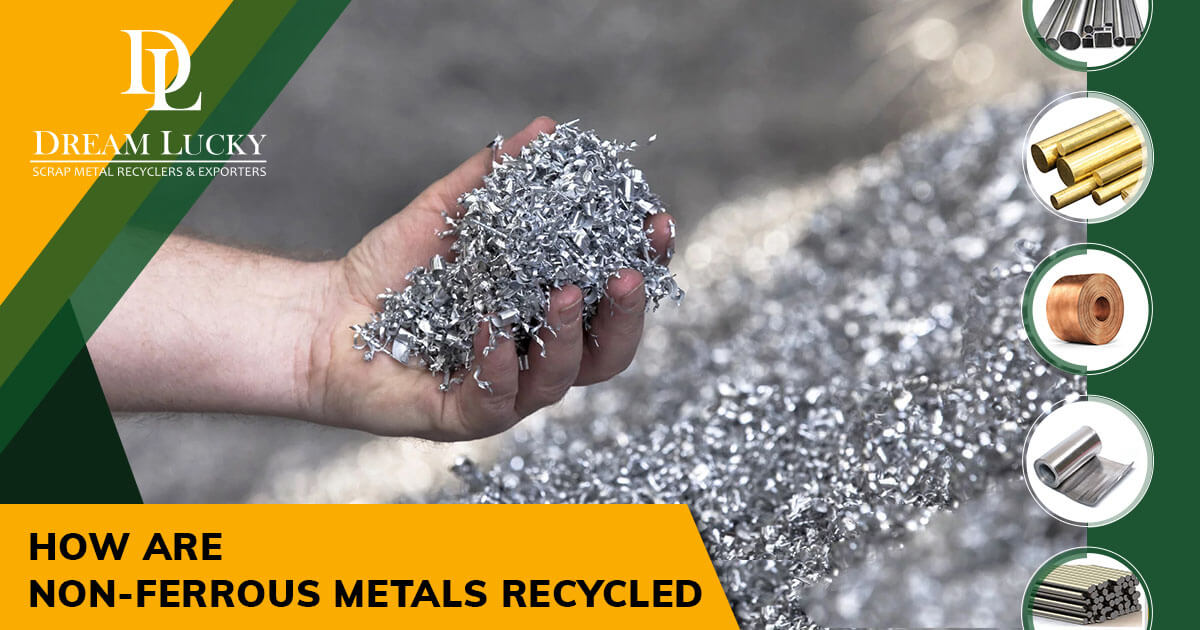
What Is Non-Ferrous Scrap Metal
Non-ferrous metal recycling is vital for both environmental and economic reasons. These metals can be recycled indefinitely without losing any of their properties or quality, which include:
- Aluminium
- Copper
- Brass
This means that continuing to recycle these materials reduces the need for mining, which can have harmful impacts on local ecosystems. Non-ferrous metal recycling also saves energy and resources – it takes 95% less energy to recycle aluminium than it does to create new aluminium from raw materials. Furthermore, recycling non-ferrous metals help support the economy by creating jobs in the recycling industry and decreasing our reliance on imported metals from other countries.
In short, non-ferrous metal recycling is a crucial part of maintaining a sustainable society. Non-ferrous metals, such as aluminium and copper, can be recycled infinitely without losing their properties. Recycling these materials requires much less energy and resources than producing them from raw materials.
This not only helps to conserve valuable resources but also results in fewer emissions and pollutants in the environment. The process of recycling non-ferrous metals begins with sorting and shredding the materials before removing any contaminants. The shredded material is then melted down and formed into new products or used as a raw material for producing new items.
By choosing to recycle non-ferrous metals, individuals and companies can play an important role in reducing our impact on the planet. Recycling these materials not only conserves resources and reduces waste, but it also requires less energy than producing them from raw materials. One method of non-ferrous metal recycling is metal precipitation, which involves separating metals from an industrial waste solution in a controlled environment.
This process allows for the recovery of valuable metals that may have otherwise been lost during traditional manufacturing processes. By implementing non-ferrous metal recycling methods such as metal precipitation, we can reduce our reliance on new materials and continue to use these metals over and over again.
How Metal Precipitation is Used for Non-Ferrous Metals Recycling
Metal precipitation, also known as metal hydroxide precipitation, is a process used in the recycling of non-ferrous metals such as copper and lead. The process involves adding chemicals to a metal-containing solution to create metal hydroxides, which can then be separated and collected for reuse. This method allows for the efficient recovery and reuse of valuable metals, reducing the need for mining and decreasing environmental impacts.
In addition to non-ferrous metals, metal precipitation can also be used in wastewater treatment to remove heavy metals from water sources. Overall, metal precipitation is a useful tool in both recycling and pollution prevention efforts.
Metal Electrowinning in Non-Ferrous Metals Recycling
Another common recycling method is electrowinning, which is mainly used for non-ferrous metals such as:
- Silver
- Aluminium
- Copper
- Zinc
- Nickel
- Gold
- Lead
In this process, metal ions in an electrolytic solution are reduced to solid metal at the cathode through the application of electric current. The resulting products can be reused in various industries without losing their original properties. Additionally, electrowinning is cost-efficient and environmentally friendly because it does not require high temperatures or harsh chemicals.
How Commercial Scrap Metal Operators Separate It
Non-ferrous metal detectors can be a valuable tool in the recycling process. By removing non-ferrous metals, such as aluminium and copper, from the waste stream, these detectors help to increase the efficiency and profitability of recycling operations. Additionally, removing these metals before they are processed allows for improved safety conditions and a reduction in costly damage to equipment.
When it comes to recycling non-ferrous metals, it’s important to choose a company you can trust. At Dream Lucky Scrap Metal, we have built a reputation for honesty and professionalism in the industry. We offer competitive prices for a wide range of metals, from aluminium and copper to brass.
Our experienced staff can help identify and sort different types of metal, ensuring efficient processing. And with our commitment to environmentally friendly practices and strict adherence to safety standards, you can trust that partnering with Dream Lucky Scrap Metal is the responsible choice. So when it comes time to recycle your non-ferrous metal, think Dream Lucky Scrap Metal.
Omer Bekhit
The dedicated owner and operator of Dream Lucky Scrap Metal. He has been at the forefront of ethical scrap metal recycling, exporting, and dealing. With a hands-on approach to the business, Omer ensures that every transaction is conducted with transparency and sustainability in mind.